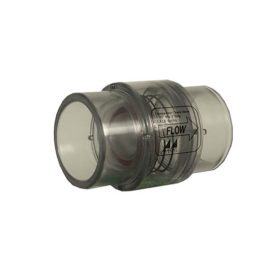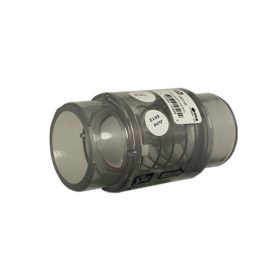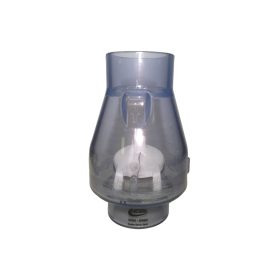Blower, Air Supply Galaxy Supreme, 1.0hp, 230v, 4.0A, Hardwire | 6510201
$173.63
Out of stock
Want to be notified when this product is back in stock?
Air Supply Galaxy Supreme Blower Model 6510201 – 1.0HP, 230V
Elevate Your Spa Experience with the Power of the Galaxy Supreme
As an individual retailer of premium hot tub components, I’m excited to introduce the Air Supply Galaxy Supreme Blower Model 6510201 – a high-quality 1.0HP, 230V air blower designed to enhance your spa experience.
Consistent and Powerful Airflow
The Air Supply Galaxy Supreme Blower Model 6510201 is engineered to deliver reliable and powerful air circulation for your hot tub. With a 4.0A amperage and a hardwire installation, this blower is built to seamlessly integrate into your 230V spa setup and provide the airflow your tub requires.
Durable and Efficient Design
Designed to withstand the demands of regular hot tub use, the Air Supply Galaxy Supreme Blower features a thermally protected motor, a non-breakable Noryl plastic body, and acoustical anti-vibration mounts to ensure quiet operation. This efficient and dependable unit ensures your spa will continue to perform at its best.
Specifications:
| Specification | Value |
|---|---|
| Horsepower | 1.0 |
| Voltage | 230V |
| Amperage | 4.0A |
| Installation | Hardwire |
Elevate Your Spa Experience with the Air Supply Galaxy Supreme
As this highly sought-after 1.0HP, 230V blower is currently out of stock, be sure to sign up for the in-stock notification. When the Air Supply Galaxy Supreme Blower Model 6510201 becomes available, you’ll be the first to know so you can upgrade your hot tub setup and unlock a new level of comfort and enjoyment.
I’m committed to providing you with the finest hot tub components to create the perfect outdoor relaxation space. Don’t miss your chance to experience the power and reliability of the Air Supply Galaxy Supreme.
Check Valve, Air, Magic, 1/4lb, 1-1/2"S (2"Spg) Clear | $18.71 Max: 102 Min: 1 Step: 1 Add to cart | |
Check Valve, Air, Flo-Control, 1/4lb Spring, 1-1/2"S (2"Spg), Clear | $27.62 Max: 20 Min: 1 Step: 1 Add to cart | |
Check Valve, Valterra, Swing, 2" Slip x 2" Slip, Clear | $32.34 Max: 13 Min: 1 Step: 1 Add to cart |
Considerations when replacing a blower
When replacing a hot tub blower, there are a few important factors to consider. One of the most important considerations is ensuring that the voltage of the replacement blower matches the voltage of your hot tub’s electrical system. This is because using a blower with the wrong voltage can result in damage to the blower, the hot tub’s electrical system, or both. Check if the blower you are replacing is 230V or 120V – it makes a difference! While the power of the blower is not necessarily important, it’s a good idea to select a replacement blower that has a similar power rating to your existing blower. This will help ensure that the replacement blower is capable of producing the desired air pressure and flow rate in your hot tub. Another factor to consider when replacing a blower is the size of the blower’s outlet pipes. If the replacement blower has different pipe sizes than your existing blower, you may need to use adaptors or convertors to connect the blower to your hot tub’s plumbing. This is important to ensure that the blower is properly connected and doesn’t leak air. In summary, when replacing a hot tub blower, it’s important to match the voltage of the replacement blower to your hot tub’s electrical system and consider the power rating and pipe sizes of the replacement blower. By selecting a replacement blower that matches these criteria and ensuring that it’s properly installed, you can help ensure that your hot tub continues to provide a relaxing and enjoyable experience.Don’t forget the Check Valve!
A check valve is an important component to consider when installing a hot tub blower. A check valve is a one-way valve that allows water to flow in one direction only, preventing backflow. In a hot tub, the check valve is typically installed on the air line between the blower and the jets. This keeps the water out of your blower – last thing you want is water in your blower. There are a few reasons why a check valve is important when using a hot tub blower:- Prevents water from entering the blower: Without a check valve, water can backflow from the hot tub plumbing into the blower when the blower is turned off. This can cause damage to the blower and can also create a safety hazard if water comes into contact with the blower’s electrical components.
- Maintains air pressure: A check valve helps maintain the proper air pressure in the hot tub system. Without a check valve, air can escape from the hot tub jets when the blower is turned off, reducing the water pressure and the effectiveness of the massage feature.
- Reduces noise: A check valve can help reduce noise in the hot tub plumbing system. When the blower is turned off, water can flow backwards through the air line and create a gurgling or burping noise. A check valve prevents this noise from occurring.
Wiring a Hot Tub Blower
When wiring a hot tub blower, it’s important to not only follow the manufacturer’s instructions but also to check the pin out diagram on the spa pack. The pin out diagram will show you the location of the various terminals and connectors on the spa pack, which you’ll need to connect to the blower. Here are the steps to wire a hot tub blower while checking the pin out diagram on the spa pack:- Turn off the power to the hot tub at the circuit breaker.
- Locate the spa pack, which is usually located near the hot tub. Look for the pin out diagram, which should be located on the inside of the access panel.
- Determine the voltage requirements of the blower. Most hot tub blowers operate on 120 volts, but some may require 240 volts. Make sure you have the correct voltage before proceeding.
- Connect the blower to the control system. The blower should have a set of wires that connect to the spa pack. Match the wires from the blower to the corresponding terminals on the pin out diagram. Make sure to follow the manufacturer’s instructions for the proper wiring sequence.
- Connect the blower to the power source. The power source is usually a dedicated GFCI breaker or a GFCI outlet that is installed near the hot tub. Again, follow the manufacturer’s instructions and match the wires from the power source to the corresponding terminals on the pin out diagram.
- Test the blower to make sure it’s working properly. Turn on the power to the hot tub and activate the blower from the control panel. The blower should start up and produce the desired amount of air.
- Secure all wiring connections and close the access panel to the spa pack.
- Turn on the power to the hot tub at the circuit breaker.
| Brand | Air Supply of the Future |
|---|---|
| H Part# | 34-123-1405 |
| Blower Mount Type | Bottom Mount, Side Mount |
| Blower Voltage | 230v |
| Blower Amperage | 4.0A |
| Blower Model | Galaxy |
| Blower Horsepower | 1.0hp |
Related products
Gecko Heating
Watkins Topside Controls
Watkins Topside Controls
Spa Accessories
Hydro-Quip Spa Controls
Hydro-Quip Outdoor Series 5.5kW 230V Flow Thru Heater 26-0053-F-M7-KS
Balboa Topside Controls (Overlays)
Sundance Topside Controls
Hydro-Quip Spa Controls
Hydro-Quip 6000 Series Spa Control Flow Thru Heater CS6200Y-U-WP






